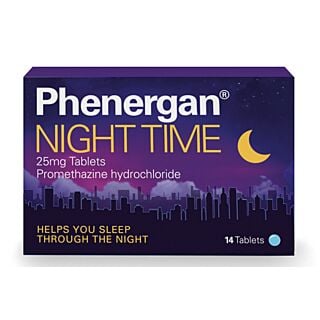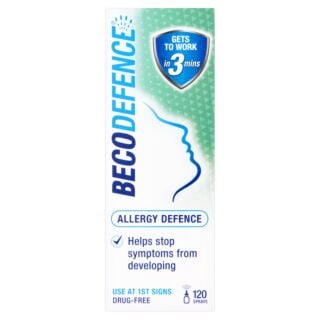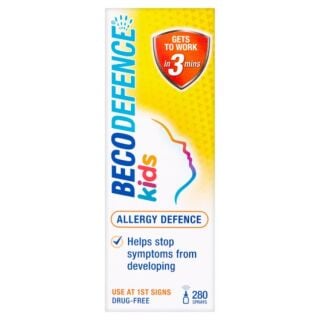Is your hay fever worse at night? These 6 simple steps will help you sleep better

Hay fever can be a debilitating disturbance to our waking life, with many of us plagued with watery eyes, sneezing and a blocked nose as we attempt to enjoy the warmer, brighter days.
But what if your allergy flares up at nighttime when you’re trying to sleep? It seems silly that hay fever would prey upon us when we’re enclosed in our seemingly safe, pollen-free homes.
So, why is hay fever worse for some people at night and how can you tackle that pesky pollen? Keep reading to discover 6 simple steps you can follow to sleep soundly this hay fever season.
What is hay fever?
Hay fever refers to an allergy to pollen and it’s one of the most common allergies here in the UK. Pollen particles swarm the air all year round, but it typically worsens when it’s warm, humid and windy between the months of March and September.
It presents symptoms similar to the common cold, however, hay fever can last for weeks and months at a time. If you suffer from asthma, hay fever may trouble you more, so always speak to your doctor or Chemist4U pharmacist for advice if you’re struggling.
You may experience the following symptoms:
- Sneezing
- Coughing
- A runny or blocked nose
- Red, watery eyes
- An itchy throat, mouth, nose and ears
- Loss of smell
- Pain in your forehead and temples
- Headache
- Earache
- Fatigue
Why is hay fever worse at night?
The pollen count isn’t just limited to daylight hours; it can be high in the evening and during the night, too. Certain types of pollen, such as ragweed pollen, are more likely to cause problems at nighttime due to its smaller pollen particles.
Pollen particles are tiny, making it very easy for them to seep indoors and latch onto your skin, hair, clothing and even your pets! This can aggravate your hay fever when the pollen count isn’t high.
How to relieve hay fever symptoms at nighttime
Getting enough sleep is essential to maintaining your physical and mental health, but when hay fever strikes at night, it can be tricky to catch those all-important Z’s. Luckily, there are things you can integrate into your bedtime routine that may be able to help.

Take a drowsy antihistamine
There are two types of antihistamines, drowsy and non-drowsy, and the purpose of these antihistamines is to stop an allergic reaction, such as hay fever, from happening. They work by stopping any excess production of the chemical histamine in the immune system, the chemical that triggers an allergic reaction.
If you know you’re going to suffer from hay fever, take a drowsy antihistamine, like promethazine or chlorphenamine, which is the active ingredient in Piriton tablets, about 1 hour before bedtime. Not only will it ease your allergy symptoms, but it will encourage drowsiness and enable you to sleep soundly.
Change your sleeping position
For many people, hay fever causes nasal symptoms like congestion, so it’s important to look at your sleeping position. If you’re lying on your back, your nose can’t properly drain all of that sticky mucus, so try propping an extra pillow behind your head to see if it helps.
Use a decongestant
Using a hay fever decongestant to unblock your stuffy nose and clear your sinuses is beneficial, too. Decongestants come in many forms, like nasal sprays, drops, tablets or capsules, liquids or syrups, and powders that dissolve in hot water.
Decongestants work by reducing the swelling of the blood vessels in your nose to help open the airways, making it easier for you to breathe.
Frequently wash your bedsheets and dry them indoors
If you suffer from hay fever at nighttime, pollen particles may be stuck to your bedsheets. You can bring them in yourself from your skin and hair, spreading them onto your pillow, quilt, sheet and blanket.
If you want to stop tossing and turning the night away, it’s a good idea to frequently wash your bedsheets and dry them indoors to steer clear of any pollen wishing to cling onto your freshly washed sheets.
Take a shower
As you go about your day, little pollen particles will stick to you and the things you carry. Don’t bring that unwelcome pollen into your home! Immediately wash your clothes and take a shower to avoid dragging the pollen into your bedroom.
As for your shoes and bags, clean them as best you can and leave them in an area such as the porch or near the door to stop any remaining pollen from spreading throughout the house.
Keep your bedroom window closed
This may seem like an obvious one, but if you or your partner are open-window sleepers, it’s time to secure that latch, at least during hay fever season.
As we mentioned earlier, pollen isn’t just active when the sun’s out; it can rise during the evening and at night, entering your bedroom and disturbing your sleep. If the weather is hot, opt for a fan instead.

Unfortunately, hay fever isn’t going away any time soon – sorry! If you’re unlucky enough to be struck down with hay fever at bedtime, we hope the simple steps in this guide will help to alleviate your symptoms.
After all, sleep is vital if you want to perform at your best. We have a range of hay fever and allergy treatments
so you can tackle your nighttime hay fever and prepare for a healthier tomorrow.
If you need any more information about hay fever or how you can manage those uncomfortable symptoms, visit the NHS website.









